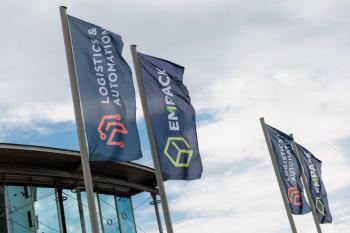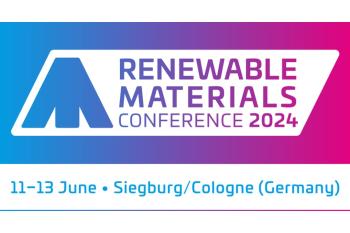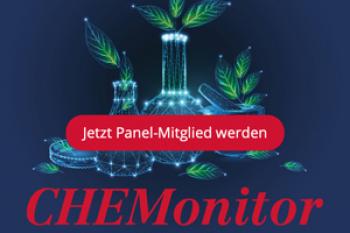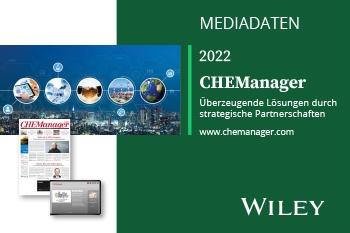Dr. Hubert Fink To Head Lanxess’ Basic Chemicals Business Unit
Dr. Hans-Georg Schmitt to Retire on Jan. 1
On Jan. 1 Dr. Hubert Fink, head of Lanxess' Semi-Crystalline Products (SCP) business unit, will take on a new position at the helm of the Basic Chemicals (BAC) business unit. He will succeed Dr. Hans-Georg Schmitt, who is retiring. CHEManager Europe spoke to both of them about what has already been achieved and the future of BAC.
CHEManager Europe: Dr. Schmitt, you've been in charge of the basic chemicals business for 10 years. What's changed during that time?
Dr. H.-G. Schmitt: When I took charge of this operation in 2001 - when it was still under the umbrella of the Bayer Group - there was a need for major restructuring. The future of this segment was at risk. As a manufacturer of commodities, or more "run-of-the-mill" chemicals, we only played a minor role in the specialties portfolio of Bayer Chemicals at that time. In the years that followed, we had to make a number of painful decisions, such as closing and selling facilities or parts of facilities. But even in difficult periods, I always felt that the employees had a real desire for success. The energy generated by that desire resulted in a major increase in productivity. This process repeated itself when Lanxess was first founded. Many people thought the purpose of this company was simply to administer unprofitable, "leftover" areas of business and didn't rate its chances of survival. They were about to get a big surprise.
The Lanxess board of management's decision to grant the business units a high level of autonomy proved very beneficial for BAC and gave it a real boost. Productivity rose by 70%within five years. That strengthened our competitiveness and enabled us to improve our position as part of the global consolidation process.
How would you assess BAC's position on the market today?
Dr. H.-G. Schmitt: Basic chemicals business is a key factor in Lanxess' success. BAC now occupies leading market positions in all product lines. Our high degree of competitiveness proved itself during the crisis year of 2009 in particular, when we maintained a very high level of stability. In fact, we even managed to gain additional market shares in many product lines. This stability is also owed to the fact that our products are used in many different areas of industry, which were affected to different degrees by the crisis.
The crisis, however, confirmed that we cannot take success and growth for granted. Success is something you have to keep on fighting for. The BAC team's ability to respond quickly and efficiently to market challenges, cut costs and blaze new trails across the board was, and is, impressive.
Dr. Fink, if we turn to future challenges, what's next on the agenda for BAC?
Dr. H. Fink: Dr. Schmitt and his management team have done an outstanding job of organizing the production and global marketing of this large number of products. The task now is to keep strengthening the leading market position BAC holds in many product lines. As part of this, we will focus on the continuing strategic and commercial development of the internationalization process, with particular emphasis on the BRIC states - Brazil, Russia, India and China. The two acquisitions made in India and China last year are an important step toward making our asset structure more regional in character.
BAC is a strong platform for growth within the Lanxess group. To achieve sustainable success, such growth must be supported by appropriate production capacities. To that end, I plan to carry out a systematic analysis of all the potential ways of achieving efficient capacity expansion within the existing production facilities. And if there are interesting opportunities in relevant markets, I will also look into options for building new facilities and acquiring production plants.
Dr. Schmitt, you began taking steps to expand BAC's production operations in Asia. What were the reasons behind this decision?
Dr. H.-G. Schmitt: Our sales markets in Europe are experiencing very low growth, stagnating even. In contrast, the Asian markets are growing very dynamically, particularly in India and China.
In the past decade, the proportion of our sales attributable to business in Asia has more than doubled. This trend remains unbroken. If we are to expand our market position in that region of the world, we have to intensify our regional presence there.
Dr. Fink, given this, what does the future hold for the production sites in Germany?
Dr. H. Fink: Our sites and facilities in Germany were - and still are - the foundations our success is built on. Like my predecessor, I have no intention of neglecting these sites. But as a commodity manufacturer, we are obliged to implement rigorous cost management. BAC will have to continue to hold its own on the market in the future, primarily against competitors from India and China. Energy costs are among the main challenges facing our sites in Germany. On one hand, these threaten to become a burden on us and to weaken our competitive position due to the climate protection obligations initiated by the EU. I also expect to see a worsening of purchase prices for petrochemical raw materials compared to our Asian competitors. This will come as a result of the continuing capacity imbalance between Europe and Asia.
On the other hand, our competitors in Asia are also facing major challenges. These include a dramatic increase in personnel costs and the growing demands they have to face in terms of environmental protection, plant safety and energy efficiency.
Are there any parallels between your new role and your previous responsibilities in the SCP business unit?
Dr. H. Fink: Definitely! Over the past six years, SCP had to deal with two key challenges. For one, we had to completely reposition the high-tech thermoplastics Durethan and Pocan on the global markets. That included modernizing the product portfolio, building up production operations close to our customers and strengthening our global marketing structures. For another, we had to get the production facilities for plastics base products to a point where they would be able to compete on the international stage.
The team from SCP mastered both challenges successfully. With SCP, Lanxess now occupies a leading position in the relevant markets.
My experience in the production of plastics base products will be particularly useful to me in my new role - after all, they are commodities, too. In both areas, efficiency, optimal production processes, lean organizational structures and cost awareness are absolutely crucial to ensuring competitiveness.
What do you consider the greatest challenge for you personally?
Dr. H. Fink: To start with, my most important task and my top priority will be getting to know BAC as quickly as possible. To be able to lead the business unit successfully, it's essential to have an in-depth understanding of the business models.
BAC's international business rests on numerous products from six product lines. These are used in many different markets and by many different customers. We sell over 100 products that are produced in large facilities at the Leverkusen, Dormagen, Krefeld-Uerdingen and Brunsbüttel sites in Germany, and in the United States, India and China. Getting to grips with this production network will be one of my biggest challenges.
Mr. Schmitt, what message would you like to pass on to the BAC team and to your successor?
Dr. H.-G. Schmitt: BAC is in a good position to hold its own on the market and to make an important contribution to Lanxess' sales and results targets. I have grown very fond of the entire BAC team over the years and I wish them every success. I also wish Mr. Fink every success in gauging developments on the global markets and hope that he will thoroughly enjoy his new role.













